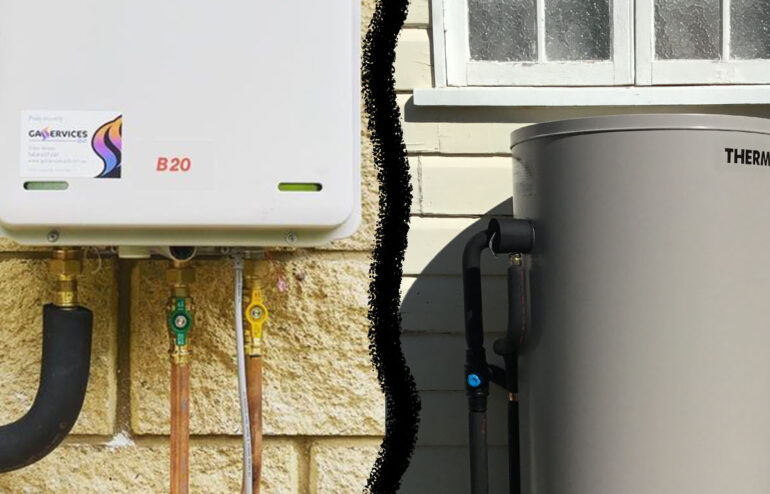Exploring the Choice: Gas vs. Electric Hot Water Systems
Hot water systems are the unsung heroes of our homes, providing us with comfort and convenience. When it comes to selecting the right system, the choice between gas and electric options often leads to some deliberation. Each has its own set of advantages and considerations. In this blog, we’ll delve into the differences between gas and electric hot water systems to help you make an informed decision based on your preferences and needs.
Energy Source and Efficiency:
Gas hot water systems rely on natural gas or LPG (Liquefied Petroleum Gas) to heat the water. They heat water faster than electric systems and are often preferred for larger households where hot water demand is higher. On the other hand, electric hot water systems use electricity to heat water, generally taking longer to reheat a tank after use. However, technological advancements have significantly improved the efficiency of electric systems, making them competitive in terms of energy consumption.
Cost Considerations:
The cost of operation is a significant factor to consider. Gas systems often have lower operating costs due to the typically lower price of gas compared to electricity. However, installation costs for gas systems might be higher due to the need for gas lines (if you haven’t already got a gas set up). Electric systems, while having higher operating costs, generally have lower installation expenses. The cost of the units are generally on par – of course, this all depends on the size and type of unit you are looking at.
Environmental Impact:
In terms of environmental impact, electric hot water systems are often perceived as more eco-friendly, especially if the electricity is sourced from renewable energy. But unfortunately, this isn’t always the case as the majority of Australian power is coal-generated. Modern gas systems have made considerable strides in efficiency and emissions reduction – so are still the real winner in most instances when it comes to environmental efficiency.
Performance and Reliability:
Gas systems usually offer faster heating and higher recovery rates, meaning they can meet increased hot water demands more effectively. Electric systems, although slower to heat water initially, have improved in their recovery times with newer technologies. Both systems can be reliable, provided they are well-maintained and serviced regularly.
Space and Installation Requirements:
Electric hot water systems generally require less space compared to gas systems. They can be installed almost anywhere and do not need additional venting. Gas systems need adequate space for proper ventilation, and the installation process might require a specific area for gas line connections.
Maintenance and Longevity:
Maintenance for both systems is essential for longevity. Gas systems might need more regular maintenance due to their combustion processes and additional components. Electric systems, while typically requiring less maintenance, may have issues with heating elements or thermostat malfunctions over time.
The choice between a gas and electric hot water system depends on various factors including your household’s hot water needs, cost considerations, space availability, environmental concerns, and installation options. Consider evaluating these factors and determining which aspects are more crucial for your situation. Consulting with a professional for advice based on your specific requirements can help you make an informed decision that best fits your needs and preferences.
Ultimately, whether you opt for a gas or electric hot water system, both have their own merits and drawbacks. The ideal choice will be the one that aligns with your priorities and provides you with a reliable, efficient, and cost-effective hot water solution for your home. Contact our friendly team today to learn more about both options or to arrange a quote to install a new hot water system.

